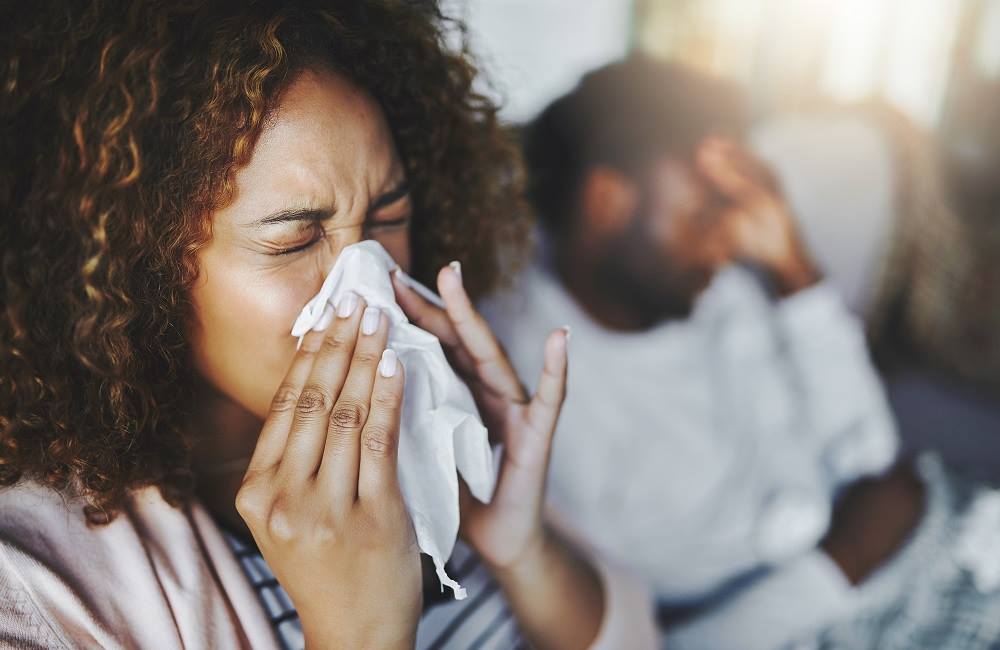Can You Have A Pot Allergy?
For so many people, the legalization of marijuana has been life-changing. But despite the many beneficial properties of marijuana, some people are starting to wonder if you can have a pot allergy.
Really? A Pot Allergy?
The simple answer is yes. Like pollen, marijuana is an allergen. This means it could lead to allergy symptoms in some people.
In recent years, there seems to be an increase in marijuana allergies. However, that may be due in part to the increased presence of marijuana in society and the increased number of medical studies that use cannabis.
Here are the things you need to know to stay informed and stay safe.
Pot Allergy Risk Factors
With allergies, symptoms can more likely impact people who have existing allergies to properties made up of similar protein structures.
This sort of allergen cross-reaction for marijuana may occur in people who are allergic to foods with properties that are similar to cannabis, such as:
- Apples
- Almonds
- Bananas
- Chestnuts
- Eggplants
- Grapefruit
- Peaches
- Tomatoes
Another potential risk factor for a marijuana allergy is increased exposure to the plant. This means that areas that grow cannabis plants may have more cannabis pollen. People who live in these areas may have an increased chance of being exposed to the plant’s pollen.
Types of Marijuana Allergies
Marijuana allergies can manifest in different ways for different people, depending on if it is inhaled or comes into contact with the skin.
People who are allergic to the pollen may develop rhino conjunctivitis, the symptoms that are commonly associated with allergies, like:
- Red or watery eyes
- Itchy eyes or nose
- Runny nose
- Sneezing
- Nasal congestion
- Post-nasal drip
For others, handling the actual marijuana plant may cause skin irritation. However, keep in mind that it may not be the actual cannabis plant that is causing your reaction.
It is possible for marijuana to be impacted by other allergens, like mold. So, if you have contact with marijuana that has developed mold, you may be reacting to mold, not the plant.
That’s why it’s important to make sure you find out exactly what is causing an allergic reaction.
Diagnosing a Marijuana Allergy
If you suspect a marijuana allergy, all you have to do is get tested like you would for any other allergy. Testing your skin is the most common way to achieve this.
During the skin prick test, your physician will prick your skin using a small amount of the allergen to see how your body reacts. If the affected area gets itchy or begins to swell after 15 to 20 minutes, you are allergic to the substance. If you remain symptomless, you are not allergic.
There are also a number of blood tests that can be used to determine whether or not you’re allergic to marijuana. These tests look for specific antibodies that are associated with the allergen to see if they are present in your bloodstream.
Since blood tests require lab work, they may take longer to get results.
What Happens After a Marijuana Allergy Diagnosis
Like any allergy, treatments for marijuana allergies vary based on how severe the allergy is and other health factors. Treatment could include nasal sprays, inhalers or medication.
Dr. William Silvers, an allergist in Colorado, wrote an editorial that outlines his recent experience with patients who had marijuana-related allergies. In his experience, “cannabis sativa is a mild allergen.”
For some people, the allergy may be severe enough that it requires avoiding the allergen completely. But for most, treatments can make a marijuana allergy manageable.
More research is in the works. With marijuana becoming legalized in more states, the medical community will continue to find new ways to use marijuana and new treatment options for allergy sufferers.




